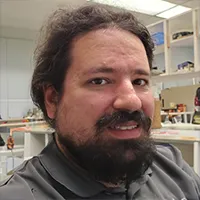Coatings Trends & Technologies Summit is expanding its offerings with four short courses.
These short courses will offer an extensive day of interactive learning.
Participants will learn:
The course begins by examining the types and chemical structures of commercially available surfactants, followed by an exploration of how inter-atomic and inter-molecular forces influence surface tension. Participants will gain a deeper understanding of surface phenomena such as surface area, surface tension, surface pressure, wetting, surface transport, and micelle formation. The course also delves into foam stabilization and destabilization, explaining the role of surfactants in bubble dynamics, both at surfaces and with entrained air. Additionally, we will explore the role of surfactants in the dispersion process and methods for measuring surface tension under static and dynamic conditions.
The second part focuses on the principles of rheology, including its definition and the key factors that influence it, such as chemical structure, morphology, and environmental conditions. Topics include the effects of deformation forces—compression, tension, torque, and shear—and how these forces shape viscosity and flow behavior over time. Participants will review the chemistry and evolution of modern rheological agents and their applications across various formulation types, including waterborne, solventborne, aliphatic, aromatic, and polar systems
 Sam Morell
Sam Morell
President
SamMorell.com
Participants will learn:
Binder technologies form the cornerstone of powder coating formulations, driving critical performance attributes such as UV durability, corrosion resistance, and aesthetic appeal. In this short course, we will examine the primary types of binder systems used in powder coatings, with in-depth discussions on resin and crosslinker selection, crosslinking mechanisms, and strategies to tailor formulations for specific performance requirements.
The course also features focused explorations of advanced topics, including matting techniques specific to binder type and approaches to formulating the low-temperature-cure powder coatings that are essential for heat- sensitive substrates, high-metal-mass parts, and energy efficiency.
Through detailed discussions, practical examples, and technical insights, participants will leave with the tools to confidently navigate the complexities of resin selection and formulation. Whether you’re a formulator, raw material supplier, applicator, or end user looking to deepen your understanding of powder coatings, this course provides a foundation for building expertise in the field
Participants will learn:
A practical guide to rheological additives in latex paints, including cellulose ethers, clays, HEUR, and HASE/ASE thickeners. Step-by-step discussion of the selection of rheological additives based on research procedures, taking into account obtaining initial viscosity, and stabilizing viscosity over time, including storage stability, tintability as tint viscosity stability, as well as viscosity in the entire area of shear forces (Brookfield, Stormer, ICI-CAP), with attention to secondary rheological properties such as brush/roller drag, spattering, sagging, leveling.
 Dr. Artur Palasz
Dr. Artur PalaszParticipants will learn:
In this course we will cover strategies to maximize the performance of industrial coatings systems. We will highlight raw materials and how they affect the physical properties such as corrosion resistance, adhesion, the balance on hardness and flexibility… We will cover the main raw materials used in industrial coatings (resins/binders, pigments, solvents and additives) and formulation methods to achieve the optimum balance of properties. Also covered will be cure mechanisms and how to optimize resin choice.
 Michael Praw
Michael Praw
Senior Applications Scientist
Indorama Ventures
 Sam Morell
Sam Morell
President
samMorell.com
Sam Morell is a Chemical Engineering graduate of New York University. With over 50 years in the Chemicals industry, his experience includes both technical and marketing positions at Rohm and Haas, BASF, and Air Products and Chemicals. Mr. Morell has authored numerous technical articles on additives, pigments, and resins in various publications including PCI Magazine, Modern Paint and Coatings, The American Ink Maker, and Adhesives Age. He has been invited by various domestic and international industry symposiums, as well as Fortune 500 companies, to present both technical papers and educational courses. These include The American Coatings Show, The Waterborne Symposium, The European Coatings Show, and Coatings Trends and Technologies.
 Michael Praw
Michael Praw
Senior Applications Scientist – Paints, Coatings and Inks
Indorama Ventures
Born and raised in Montreal, Mike now lives in the Houston area. He has 35 years of coatings formulation experience, 18 years with coatings companies and 17 years with raw material suppliers. He is currently Senior Applications Scientist – Paints, Coatings and Inks, for Indorama Ventures: Integrated Oxides and Derivatives. He has degrees in Analytical Chemistry and Environmental Sciences, as well as a MBA. Mike is the Past President for The Detroit Society for Coatings Technology and The Piedmont Society for Coatings Technology, and served on the board of the Chicago Society for Coatings Technology. Mike is a Canadian Armed Forces veteran, having served 15 years in the Canadian Infantry.
 Artur Palasz, Ph.D.
Artur Palasz, Ph.D.
Technical Director
Spektrochem Technical Center of Raw Materials for Architectural Paints
Artur Palasz is a chemist specializing in architectural coatings, their formulating and testing. He is the R&D Director in the Spektrochem Technical Center and cooperates with leading manufacturers of raw materials for paints in the field of developing starting point formulations, investigating the effectiveness of raw materials, and testing of paint and coatings. He is the author of numerous technical articles in global coatings journals, as well as a speaker at many coatings conferences in the United States and Europe. He is passionate about traveling and the creator of electronic music.
 Eric Casebolt
Eric Casebolt
Vice President
The ChemQuest Group, Inc.
An accomplished leader with a proven track record of providing viable and actional solutions to organizational goals, Eric Casebolt started his career formulating powder coatings in support of resin development at Johnson Polymer. He later held numerous roles of increasing responsibility with BASF and Eastman Chemical Co., most recently serving as strategy manager at Eastman. Eric has worked to develop and market many resin technologies and formulation additives for use in coatings, packaging, and construction applications. He earned a bachelor’s degree in chemistry from the University of Wisconsin Parkside, a master’s degree in chemistry from DePaul University, and an MBA from Wake Forest University.
 Nathan Biller
Nathan Biller
Vice President
ChemQuest Powder Coating Research
Nathan Biller began his career in the powder coating industry in 2001 with Jamestown Powder Coatings, joining Powder Coating Research Group in 2011 (PCR was acquired by ChemQuest in 2021). He soon emerged as the team’s lead formulator, tackling complex formulation challenges in numerous industries, including transportation, medical instruments, aerospace, injection-molded automotive trim parts, and architectural. As a member of the CQPCR leadership team, Nathan assists clients in navigating strategic and business challenges. In addition, his technical skills continue to lead to numerous technology development advancements.
